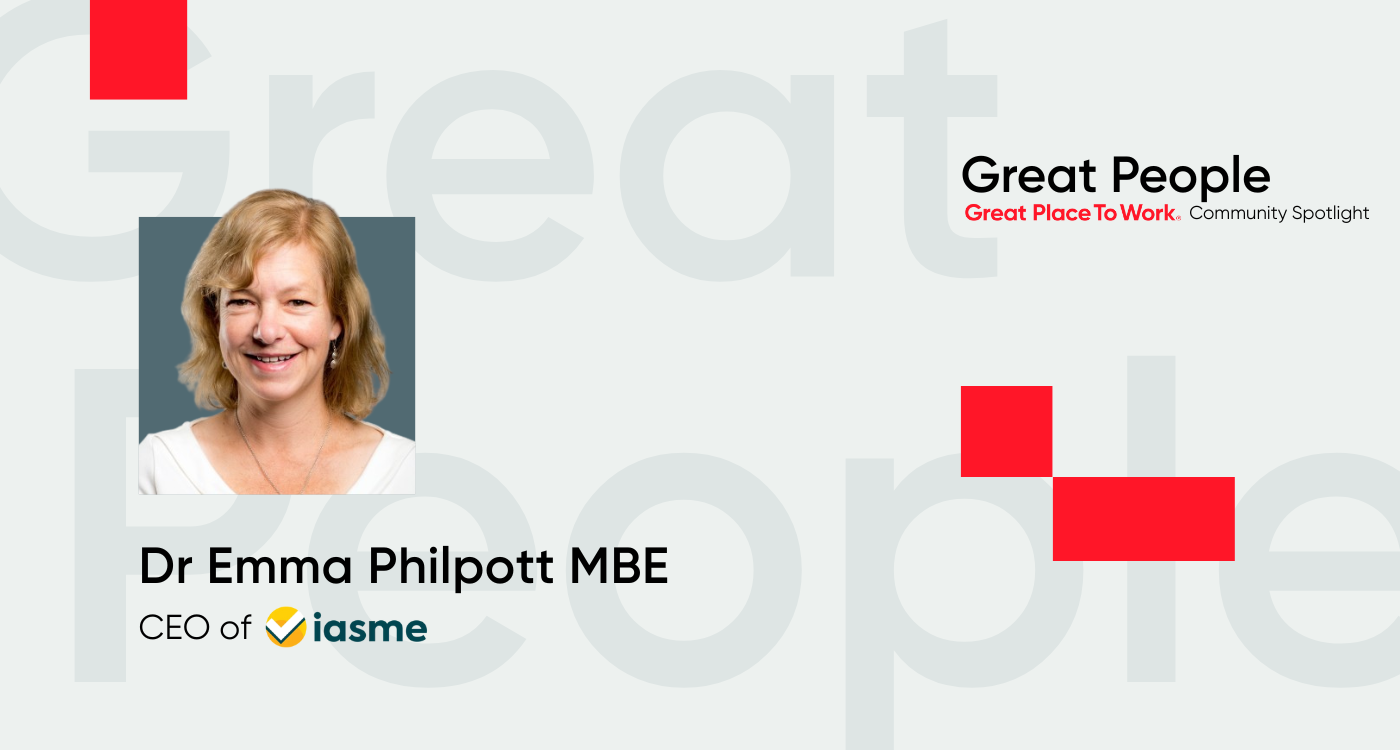International Women's Day (March 8th) is dedicated to equality. It is an important occasion for us to highlight successful women who are committed to pushing the agenda of equal rights forward, all while pursuing an impressive and inspiring career path.
Q: How does your organisation work to ensure there are non-bias recruitment and salary processes?
A: At McCarthy Recruitment, we’ve worked hard to create a culture of true inclusion: one where people are accepted and respected as individuals and where we’re genuinely supportive of, and value, difference. By embedding inclusion into our culture we understand each other better, see things from others’ perspectives and respect different points of view. It helps us create an organisation that’s innovative and creative and that attracts and retains the best talent.
For us (and for the clients we’re working with too), it all starts with getting it right at the recruitment stage. We don’t focus on attracting, for example, a specific social group. We make sure our organisation’s attraction strategy, the way we’re perceived by potential candidates and seen by the wider world generally, fosters difference; and we actively talk about having a fair workplace that encourages difference and belonging.
Our advertising and marketing is job-based, and our employee brand and language we use is gender-neutral and works to encourage applications from any background. We’ll challenge ourselves over specific job descriptions and expectations, keeping the spec as open as we can; and encourage applications requiring flexible working arrangements to make the pool as wide as possible. We want someone who’s going to flourish in our culture, but that doesn’t mean we’re looking for a specific type of person. When screening, we use blind CVs. We recruit purely on our company behavioural DNA tree – so it’s based on evidence of those behaviours and skills and nothing else.
I’ve heard people at some organisations that say, ‘I can tell if someone is going to fit in the moment they walk through the door’. How? By what they’re wearing?? It’s impossible! Bias must be flushed out – it’s the biggest root of a non-diverse business.
When it comes to the salary process, we have a clear pay structure that only changes depending on role seniority and length of service. The entry level point is the same for everyone.
"When screening, we use blind CVs. We recruit purely on our company behavioural DNA tree – so it’s based on evidence of those behaviours and skills and nothing else."
Q: How do you encourage female leadership on your team?
A: I believe people want to work for businesses that are genuinely inclusive. I put a lot of work into getting this message into the public domain for our external talent, but it’s also an important message to keep talking about with the internal team.
As part of that conversation, I want to know about any barriers my female team members face. I don’t want anyone held back from achieving what they are capable of. I consciously set out to be a role model: both to the generation that’s coming through now and the younger women around me, but also to encourage all women to make the most of development opportunities and take on leadership roles. That includes making sure everyone has the resources to identify what needs to be developed and then offering the necessary support, role changes and experiences to make it happen. The language we use and the culture we have completely supports the fact that we are all equal and individual. We have a real, active belief in gender diversity.
At a practical level, we do everything we can to address any issue that might deter someone from taking on a leadership role – female or male. The challenges people face are varied. So yes, there will be some females who need flexible working options in various forms to enable them to fulfil caring responsibilities (but this applies to men too). People might prefer to work from home, or have working hours that enable them to do school pick-ups and drop-offs.
To be honest, there are all kinds of reasons why flexibility can make someone’s life easier and career opportunities more available to them. We’ve worked really hard to ensure that we have a truly flexible and diverse culture where everyone knows they’re supported 100% and can flourish in their own way and achieve the right balance for them.
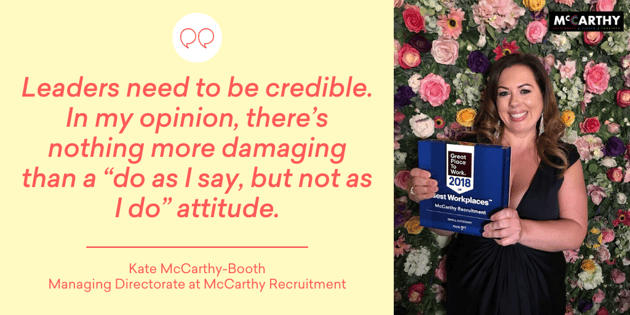
Q: How do you define the attributes of a great leader?
A: First and foremost, a great leader is authentic, genuine and open – and that includes being honest about all the difficulties as well as the successes. They need to be a strong role model, leading by setting the example and shaping the culture of the business by truly living the values.
A great leader must be able to empathise and think about how it feels to walk in their employees’ shoes. It’s a balancing act – a leader does need to be able to challenge their team, but always in an encouraging and supportive way to get the best out of them.
Leaders need to be credible. In my opinion, there’s nothing more damaging than a “do as I say, but not as I do” attitude. An ability to lead through difficult times is vital too – but that doesn’t mean pretending you know all the answers. It’s all about working with, and inspiring, your team to navigate difficult times together. Every great leader must listen. Whether it’s tough times or not, they should always be open to feedback, looking to improve and develop and be open to change. And be willing to admit mistakes because every leader will make them!
Q: How do you encourage women in the business community who want to succeed?
A: The key here is being honest and open about your own journey and that includes being willing to share the times you struggled, the times you felt down about how things were going. That way, you’re inviting others to learn from you. That willingness to be a bit vulnerable, and to say, ‘OK, I got it wrong here, and this didn’t go the way I planned’ tells others that you’re approachable. They feel more able to connect with you and share their worries, fears and concerns in an open environment where everyone can be supportive of each other.
In fact, I passionately believe that as women we must support each other. That support should be accepting and non-judgemental, as women can be their own worst enemy sometimes. I include myself in that. I definitely have imposter syndrome and I think sharing that helps others. I know I can be perceived as confident and sure of myself when in actual fact I have plenty of insecurities and worries, just like everyone else. Believing in ourselves, giving each other a boost and recognising and celebrating the achievements of other women in business is so important.
About Kate McCarthy
Kate founded McCarthy Recruitment in 2005 and has worked in the recruitment sector for over 22 years. With a wealth of experience, Kate advises on recruitment and people strategies and delivers training for many leading organisations. Trusted as an expert in her field, she regularly appears on the BBC. Known for having an honest and pragmatic approach to recruitment and delivering solid engagement strategies within the recruitment sector itself, Kate has implemented change programmes and works closely as a partner with in-house teams advising on candidate experience, retention, diversity and efficiency models. Kate is a graduate in Sociology with a specialism in Employment. You can learn more about McCarthy Recruitment at www.mccarthyrecruitment.com
Read our 2020 Women at Work report for valuable insights and people practices from the 2019 Best Workplaces™ for Women.
Contact Us today to learn how your organisation can be recognised as a 2020 Best Workplace™ for Women
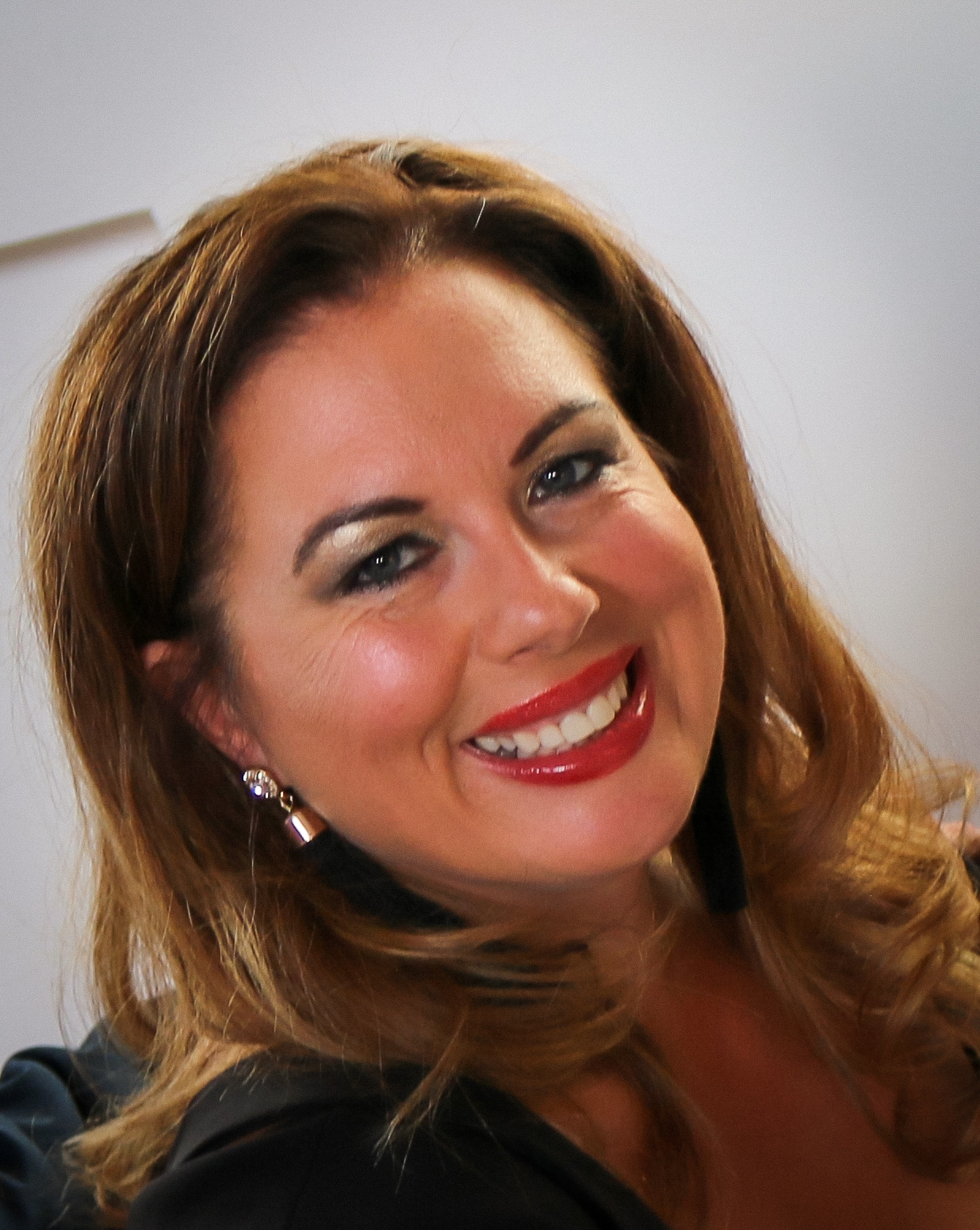
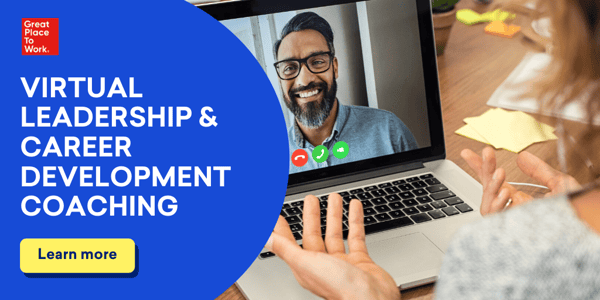


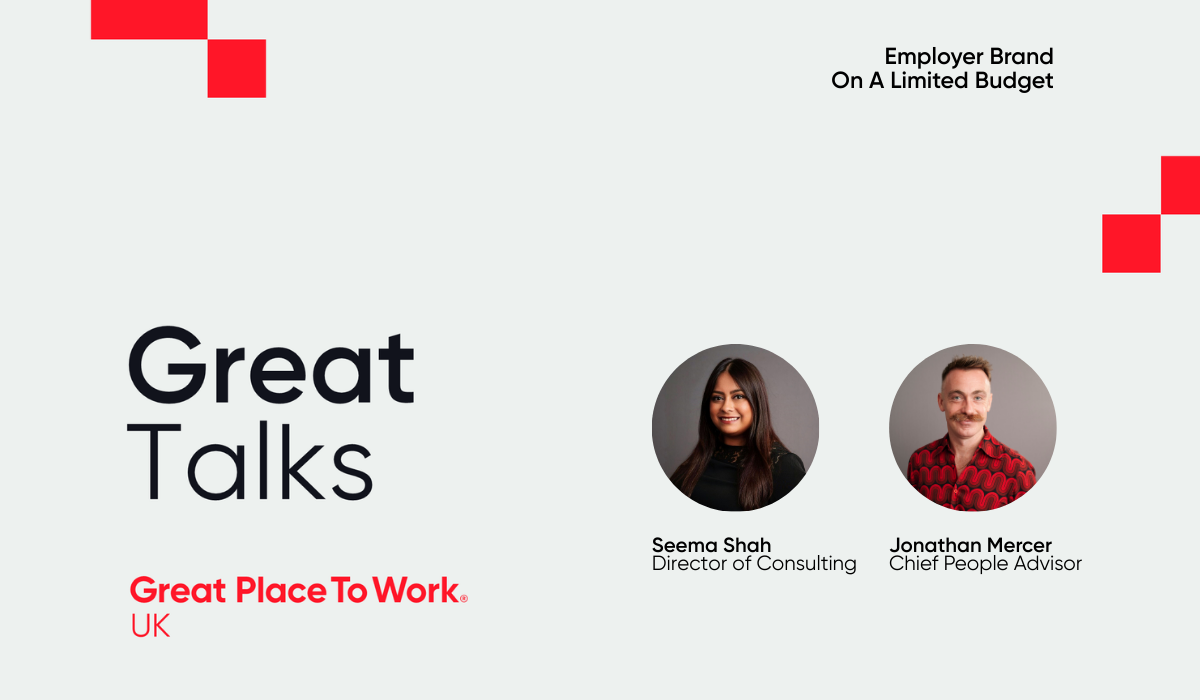

.png)

